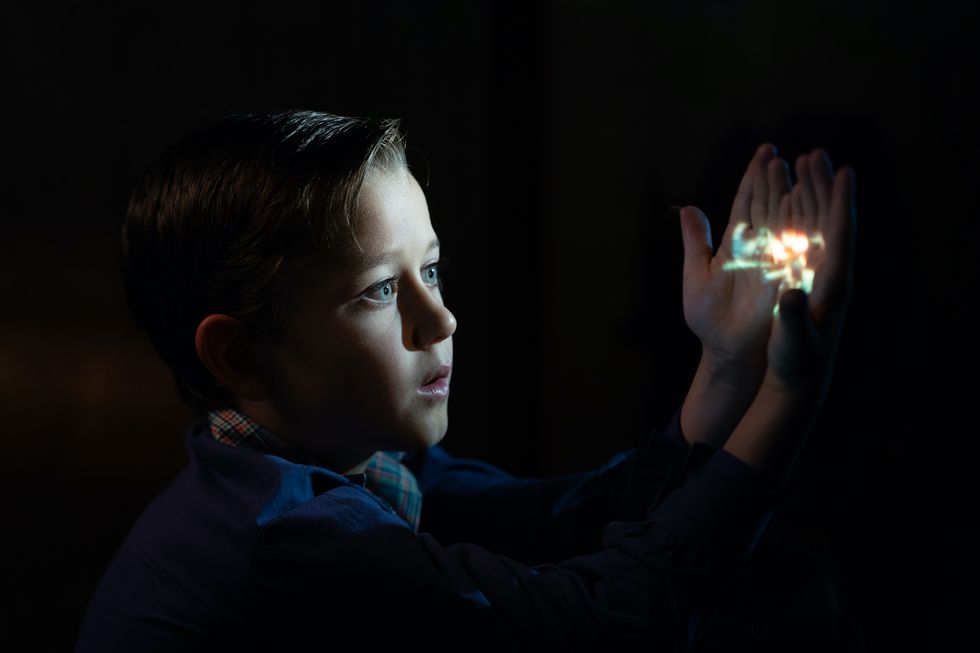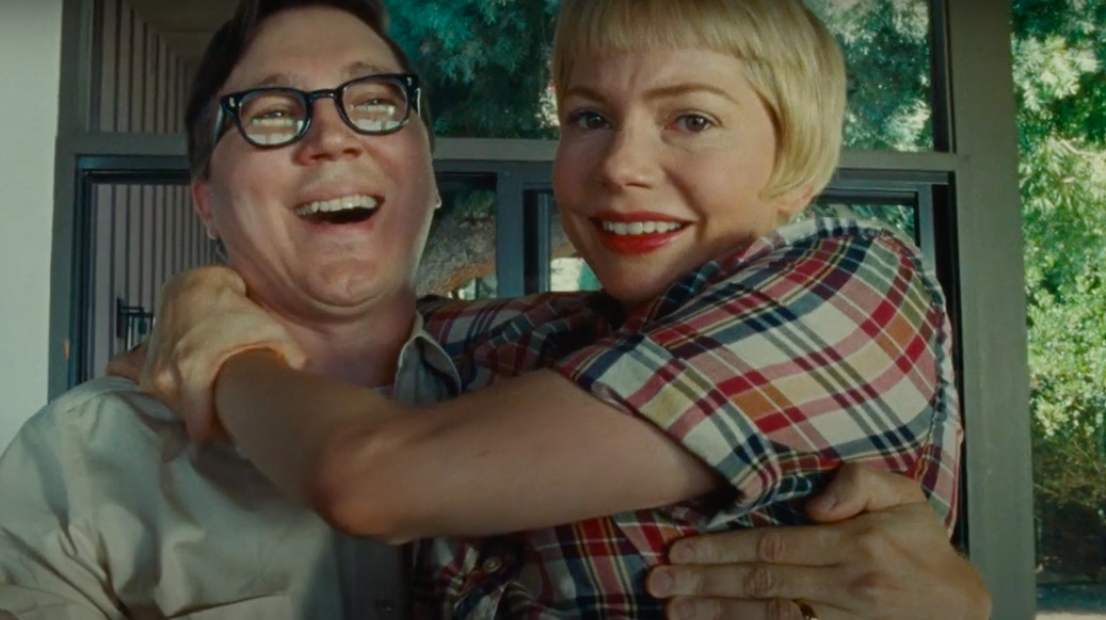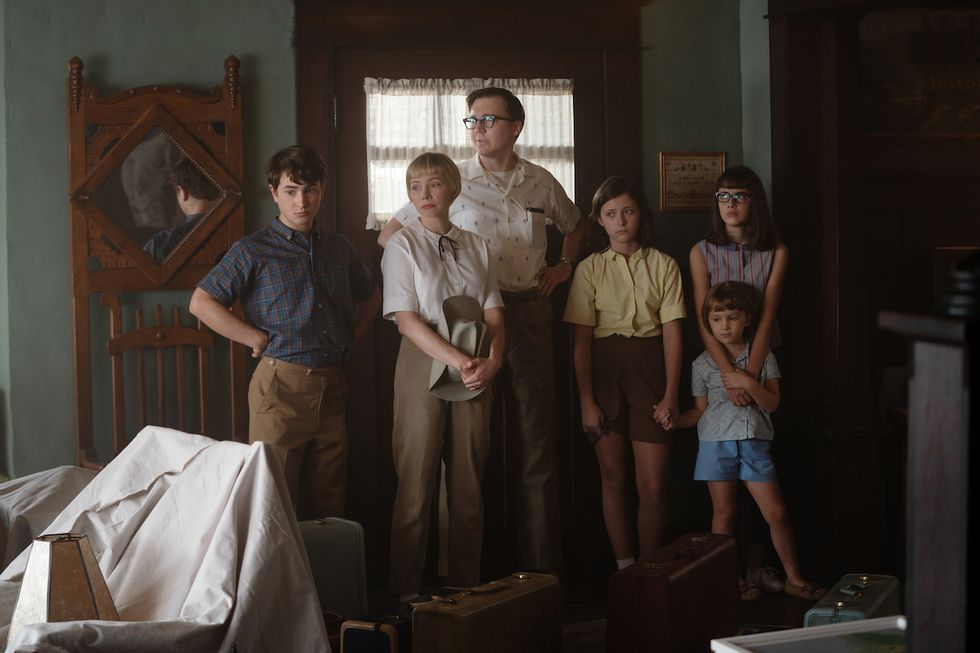After watching The Fabelmans (all two-and-a-half hours of it), I returned to the trailer for Steven Spielberg’s latest film. I had first seen the preview last autumn when it was released stateside, filing it under “tearjerker”: a glassy-eyed Michelle Williams uttering that “movies are dreams that you never forget”, a twinkly, soaring score, rolling footage of family car-rides and camping trips, a dash of high school trauma, first love. At our screening, Spielberg introduced the film as “$40 million worth of therapy”. Reviews have hailed it as the director’s most personal film yet. Had I been imagining things? The film did not make me shed a single tear. No lump in this throat.
The Fabelmans, which just picked up seven Oscar nominations, tells the almost-true story of Spielberg’s younger life. Sammy Fabelman (adept newcomer Gabriel LaBelle) is the stand-in for the young director. The film follows the Fabelmans – whimsical mum Mitzi (Williams), hardworking dad Burt (Paul Dano), Sammy’s sisters (very much sidelined) – as they grow up in the ’50s and move across America for Burt’s job as a computer engineer. Uncle Bennie (Seth Rogen), not an actual blood relation, hovers in the background, as a comedic counterpart to Burt and love interest for Mitzi. This family’s quirks are both trying and charming: living-room piano recitals, singalong camping trips, frenetic dinners.
At its centre is Sammy’s obsession with filmmaking. The movie opens with his first trip to the cinema to watch The Greatest Show on Earth with his parents. A scene of a train crash transfixes him: Sammy won’t rest until he’s able to recreate it with a toy train and a camera bought for him by his dad. The hobby, both obsession and calling, takes hold. After the family moves from New Jersey to Arizona, he enlists his boy scout pals to collect scorpions which they trade for money to buy film. His ambition and vision grows: he orchestrates a surprisingly nifty war flick and films the end-of-year “Ditch Day” for the school he later attends in California.
Spielberg’s therapy comment turns out to be apt. Many of the stories are so specific – falling in love with a girl who is obsessed with Jesus, to take one baffling example – it feels like we are in session with the filmmaker. Perhaps the film provided Spielberg with break-throughs. Other people’s breakthroughs are not always thrilling to watch. Details are good, essential even, but this singularity is jarring. The more Spielberg draws you into this semi-autobiographical adolescence, the more alienating it becomes. It doesn’t help that Williams, a very fine actor and ostensible heart of this story, acts as if she is in a completely different film, spinning about making declarations about art, buying monkeys, longing after Seth Rogen.
It is rare that I want a long film to be even longer, but there are no conclusions for many of these characters. Williams’ whacky performance needed an emotional pay-off; her best actress nomination, controversial in a typically stacked year, would have felt earned if that scene existed. Instead Mitzi’s fate is sealed off-camera, in a photograph showing her new life. Bennie and Sammy’s sisters simply disappear. All that preceding weirdness builds to nothing.
When a film fails in its ambitions to make you cry, it can be considered a failure. Perhaps the actors didn’t do their jobs, maybe the writers were feeling uninspired. The director had an off day. Some people, this writer included, go to the cinema for that moment: it’s dark, no one can see you in row D, why not? It feels good feeling sad. And the name Spielberg sets you up for that: The Color Purple, Saving Private Ryan, E.T. I can’t help feeling that The Fabelmans, which fared badly at the American box office, was a victim of its own marketing.
The film works much better as a coming-of-age drama about a young artist. One spellbinding shot, in which the train crash scene is projected onto young Sammy’s hands, captures the moment he falls in love with his craft. Sammy’s self-absorption and crippling self-awareness is occasionally suffocating, but that myopia speaks to the film’s conceit: his love for film is all-consuming, to the detriment of his closest relationships. A cameo from Judd Hirsch, rightly given an Oscar nod for this instrumental performance, only cements what Sammy suspected. He has to commit to film, no matter what.
Still, he’s not a monster. Spielberg is not a monster. He seemed very lovely at the London screening, pointing out that the UK is the place where he’s most often shot his films (second to the US). Sammy cares for his downtrodden father, his skittish mother. In a bewildering scene, he has a one-to-one with the high school jock (previous characteristics: buff, and a little anti-Semitic), in which Spielberg-as-Sammy pinky-promises not to make art of this encounter. What emerges, in those conflicts, is something altogether more interesting than schmaltz: a tension which drives Sammy onwards, if things go as well for him as his real-life counterpart, to become one of the great American directors.
‘The Fabelmans’ is out now in cinemas
Henry Wong is a senior culture writer at Esquire, working across digital and print. He covers film, television, books, and art for the magazine, and also writes profiles.














